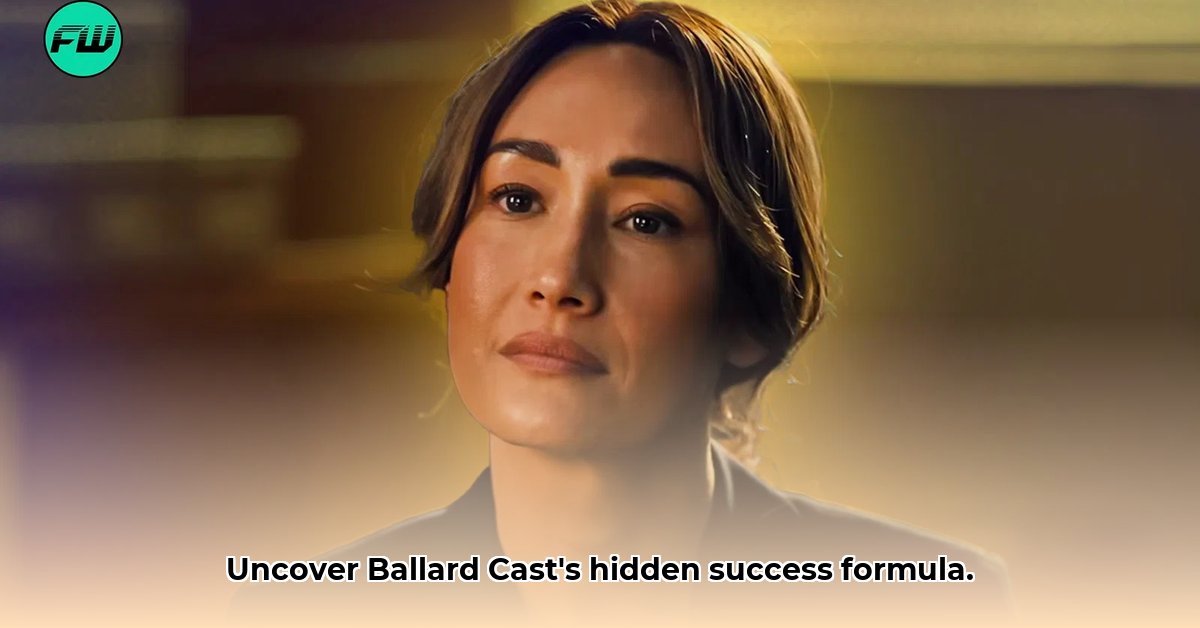
The air crackles with anticipation surrounding Ballard, the latest crime drama to emerge from the shadow of the iconic Bosch. While initially lauded as a promising spin-off, its long-term success remains unwritten. This isn't just a review; it's an autopsy of its production, a dissection of its critical reception, and a prognosis of its future. We'll unpack the strategies behind Ballard's launch and analyze whether it's a fleeting star or a long-lasting fixture in the South African television landscape.
Production: A Foundation Built on Bosch's Legacy
Ballard cleverly sidestepped the pitfalls of starting from scratch. IMDb lists a crew of over 200, suggesting a substantial budget and a commitment to production value. Filming primarily in Los Angeles, a familiar setting for Bosch fans, fostered a sense of continuity and comfort. This strategic decision – leveraging the Bosch infrastructure – likely saved time and money, mitigating inherent risks. The direct-to-streaming release further reduced the financial burden associated with traditional broadcasting. This efficient production approach, combined with the pre-existing audience interest stemming from the Bosch brand, has definitely contributed to Ballard's successful debut.
Critical Reception: Is the Hype Justified?
Initial critical response was overwhelmingly positive. A perfect 100% on Rotten Tomatoes (based on early reviews, let's remember) and an 82 on Metacritic (also early) painted a picture of near-unanimous acclaim. But beyond the numbers, the praise centered on the captivating atmosphere, the compelling central female character, and its fresh take on the well-trodden cold-case genre. Reviewers appreciated the show's gritty realism and the refreshing perspective offered by its protagonist. However, we must approach the early scores with caution. Will this initial euphoria translate into sustained critical acclaim as the series unfolds and more reviews surface? This remains an unanswered question. A drop in ratings could signal the impact of early hype.
The Story: Re-imagining the Familiar
While sharing Bosch's dark atmosphere and intricate character development, Ballard successfully forges its identity. The cold-case element provides a strong narrative framework, allowing for intricate plot twists and character arcs. The strong female lead offers a refreshing counterpoint to the male-dominated landscape of many crime dramas. This bold choice of a central female character in a genre often favoring male leads was clearly a calculated risk, and appears to have paid off so far. The narrative structure, too, has proven compelling. However, the long-term viability will depend on the writers' ability to sustain this high standard of narrative excellence. The question remains: can the writers keep the plot lines original and the characters compelling for future seasons?
Long-Term Viability: Navigating the Road Ahead
Despite its strong start, Ballard faces several significant challenges. Maintaining the production value, character development, and consistent writing quality over multiple seasons are critical. Expanding beyond its initial, Bosch-derived fanbase to capture a wider audience is equally important. The show’s dependence on sustained quality over time must be addressed, as a decline in quality may quickly erode its base.
Here's a simplified risk assessment:
| Risk Factor | Mitigation Strategy |
|---|---|
| Negative audience feedback | Consistent high-quality writing, engaging marketing |
| Budgetary constraints | Careful resource management, smart sponsorship deals |
| Intense competition | Unique storytelling, compelling characters, strong marketing |
| Creative fatigue | Rotating writers, breaks for the creative team |
The Verdict: A Promising Beginning, But…
Ballard launched with significant promise. The early critical acclaim and engaging premise suggest its potential for success. This is particularly impressive considering its position as a spin-off. Yet, long-term sustenance in the highly competitive television landscape will require continuous efforts to maintain the high standard that defines its current success. The next few seasons will be crucial in determining whether Ballard becomes a long-term success or a captivating yet fleeting chapter in South African television. The verdict, therefore, remains a cautiously optimistic one, with the future yet to be written.